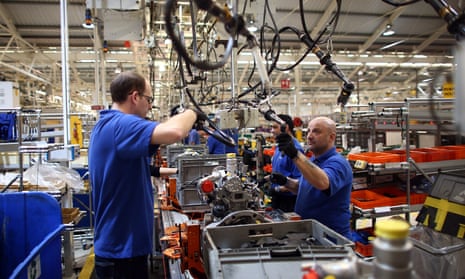Ford to cut nearly 4,000 jobs in Europe, including 1,300 in UK
US carmaker blames losses on rising costs and need to switch to electric vehicle production

Ford is cutting nearly 4,000 jobs across Europe, including 1,300 in the UK, over the next three years amid plans to reinvent the brand and focus on a smaller range of electric vehicles.
The US carmaker said it planned to eliminate 3,800 product development and administration jobs in Europe, citing rising costs and the need to speed up its switch from internal combustion engine to electric vehicles.
About 2,300 jobs will be cut in Germany, 1,300 in the UK and 200 in the rest of Europe, the company said, adding that it intends to achieve the reductions through voluntary redundancies.
Ford said 2,800 engineering roles would be axed by 2025, and about 1,000 jobs in its administrative, marketing, sales and distribution teams across Europe are set to go.
It said the shake-up would pave the way for a profitable future and enable it to compete with rival car brands in Europe, which has faced significant economic and political challenges.
The job losses will create a “leaner, more competitive cost structure” for the business and help with the transition toward a smaller, more focused and increasingly electric product portfolio, the company said.
Ford aims to retain 3,400 engineers in Europe who will build on core technology provided by their US counterparts and adapt it to European customers, according to Martin Sander, the general manager of Ford’s European electric vehicle (EV) operation and head of its German business.
after newsletter promotion
“There is significantly less work to be done on drivetrains moving out of combustion engines. We are moving into a world with less global platforms where less engineering work is necessary. This is why we have to make the adjustments,” Sander said.